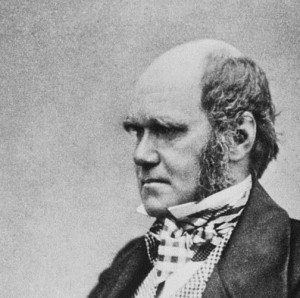
[dropcap]B[/dropcap]orn on 12th February 1809, at The Mount, Shrewsbury, Shropshire, United Kingdom, was an English Naturalist and Geologist, best known for Evolutionary Theory. He established that, all species of life have descended over time from common ancestors, His scientific theory states that the branching pattern of evolution resulted from a process called natural selection, in which the struggle for existence has a similar effect to the artificial selection involved in selective breeding.
A lot of Darwin’s work had been influenced greatly by his own unfortunate health conditions. There were times when he suffered from such medical afflictions that he could do nothing but fight them off. He used this as a means to understand the scientific world around him a little better. Instead of thinking of being cursed, he used his failing condition as a means to understand the world in a different light. This is probably why he was able to understand things that very few had ever really thought about.
Darwin’s interest in nature, led him to neglect his medical education at the University of Edinburgh, instead, he started to investigate marine invertebrates. His studies at the University of Cambridge (Christ’s College), encouraged him for his passion for natural science and after five-years of travel on HMS Beagle, he established himself as an eminent Geologist, where his observations and theories supported Charles Lyell’s unique ideas, and then the Voyage publication made him famous as a popular author.
Darwin’s social and political views reflected his time and social position. He thought men’s eminence over women was the outcome of sexual selection. He was strongly against slavery, that is against “Ranking the so-called races of man as distinct species”, and against “Ill-treatment of native people”. Darwin was able to convince most scientists, insisting that evolution as descent with modification was correct, and he was recognized for his revolutionized ideas and was honored in June 1909 by more than 400 officials and scientists across the world. During “The Eclipse of Darwinism”, period, scientists proposed various alternative evolutionary mechanisms which eventually proved untenable. From 1930s to the 1950s, that natural selection was the basic mechanism of evolution, set the frame of reference for modern debates and refinements of the theory.
Finally, after all his revolutionary thoughts and theories, Darwin, who was diagnosed for “Angina Pectoris” died due to heart failure, on 19th April 1882 at Down House. He was buried in Westminster Abbey, close to John Herschel and Isaac Newton on Wednesday 26th April 1882 and was attended by thousands of people. Darwin’s portrait had been printed on the reverse of £10 banknotes along with a hummingbird and HMS Beagle, issued by the Bank of England. A life size seated statue of Darwin can be seen in the main hall of the Natural History Museum in London.
